“The green girl necessarily pines for the past, because the present is too uncomfortable to be present in and the future, unimaginable. The need to long, to desire that which she cannot have, that which has eluded her, because she deceives herself that it was this person, this chance, where she would have found happiness.”—from Green Girl by Kate Zambreno
I. A snap-shut purse
Cities are stimulating and magnetic—especially when you’re a child of the suburbs who spent most of her earlier years in the woods or in a book. But cities escape us, run away from us, woo us and dump us. Cities have a mind of their own.
Plenty of people move to New York City every month. Every day, even. People come and people go. People decide to get the hell out of New York. People miss it and come back with a refreshed sense of wonder and a reluctant acceptance. They still resent the crowded subways and rotting garbage stench that bathes city blocks on hot summer days.
There are many reasons to run away from New York, but it all comes down to one thing: fear. Fear of failure, fear of success, fear of cost of living, fear of the entrenchment of employment or the crushing lack of it, fear of losing oneself and misplacing one’s shadow, fear of not having enough room to breathe.
The first time I moved to New York City, the buildings and the air felt invasive, like a person with bad breath who leans close to emphasize the words he is trying to articulate.
Sometimes, and especially on bad days, days when I want to pull the covers over my entire body and cocoon myself in the white duvet, I still feel that way.
Men have suits and higher paying jobs and an age-old gender preference to their advantage. Ambitious women in cities are stereotyped as tough to work for and not deserving of equal pay. (If a certain woman hadn’t stood up for herself, perhaps she’d still have a job as editor-in-chief of a certain newspaper of global renown, much like its eponymous city. But would that unspoken insistence live inside her, like a parasite? )
Jill Abramson spoke out after her firing while giving a commencement speech at Wake Forest University. “What’s next for me? I don’t know. So I’m in exactly the same boat as many of you. Like you, I’m a little scared, but also excited.”
The duality of fear and excitement, such similar emotions in the way they clutch at us, motivate us, try to paralyze us.
We endure what we can until we can’t. Underneath our skin and circulating through our bloodstream and guts, our fear pulsates inside of us. It’s a rhythm that presses against our cavity; an ache in our entire body. A wearisome, wordless, all-encompassing emotion.
I am occasionally eaten alive by my muted internal protests.
I fear that I am nothing but a voice for good books; a cheerleader for other people’s words. Words that are strung together in a better pattern than I can come up with.
“In the push of the crowd struck by that feeling that she is entirely outside of herself, only faintly aware that she is alive, moving through this world. Sometimes she is struck by how much she goes through life almost unconsciously. She is being swept along. She is a pale ghost.
Such a haunting, vacant quality.”
I am more than who or what I know. I am like the above voice, Ruth in Kate Zambreno’s Green Girl, a novel that follows a young American woman living in London and getting through every day just barely, almost floating on her misery.
Life in the city exists in this grey zone. It’s easier to lose yourself in a crowd. That’s why so many people are drawn to the constant noise and go, go, go of urban settings. In the symphony one is just a small, meek violin blending in with the other sounds.
Sometimes New York City feels like a place that preys on ambition. It eats away at our fragile hearts like Coca Cola erodes a penny. We forget what we moved here for.
II. In which we see who we want to be
Sunlight spackling a brownstone in Cobble Hill, splattered haphazardly in a way that calls to mind a Jackson Pollock painting. A young Asian woman giving you her hand after you trip over the raised sidewalk during a morning run, her face scrunched in concern. The Brooklyn Bridge stretching across the boroughs, the magnificence of the structure. A glass of rosé on a hot summer day while sitting in the shade on your stoop. Children gliding up and down their streets on scooters, testing out their own first attempts at freedom. The stretches of subway on the F train with no cell phone reception and people reading paper books. The hipster who’s sitting across from you, holding a dog-eared copy of Karl Ove Knausgaard’s My Struggle, Volume 1. The fact that any given night finds you choosing between many literary readings in Brooklyn. Or staying home in your quiet apartment, embracing the silence, snuggling up to it like you would with a pet. The subdued sound of the background noise on the street, normal as breathing. The city, breathing.
New York City is a place where shadow and reflection sometimes seem more real than the body itself. We are cloned in every shiny or dusty storefront; we see our shadow self on the pavement as we run endlessly towards it.
“Our streets are calendars containing who we were and who we will be next,” Colson Whitehead says in The Colossus of New York. “We see ourselves in this city every day when we walk down the sidewalk and catch our reflections in store windows, seek ourselves in this city each time we reminisce about what was there fifteen, ten, forty years ago, because all our old places are proof that we were here.”
We need visual reassurance that we’re actually a part of this urban landscape.
We are most alive at night, when lights illuminate our desires.
In Reborn, the first volume of her journals, Susan Sontag says: “The city overcomes night (with artificial lighting + artificial sociability in bars, restaurants, parties), it uses night—as night remains unused, is a negative time in the country.”
III. The geographical boundaries of fear
Fear and cities. Fearlessness and cities. You can’t have one without the other. Either emotion is forever dependent on its inverted twin; fear is an absence of fearlessness, and courage is an absence of fear.
Why is the emotion of fear so readily attached to women—particularly when they are navigating the complexities of an urban environment? It isn’t a gendered principle.
According to the UN-Habitat State of Women in Cities 2012/2013, a report that focuses on cities around the world: “…urban women enjoy greater social, economic and political opportunities and freedoms than their rural counterparts.” Is that really true in America, though?
There are countless stories of women moving to New York City in search of an imagined future for themselves. From the destitute but creatively rich youth Patti Smith portrayed in Just Kids to a novice socialite Holly Golightly in Breakfast at Tiffany’s, the city, and New York in particular, is often shown as a place that is big enough for real and invented lives. We take our dreams outside of our heads and hearts and wear them on our skin, tissue paper that transforms into a more indestructible material, if we’re lucky.
The toughest, bravest, fiercest people I know all happen to be females. And some of the most celebrated ones are women who wrote books about solo trips to foreign cities (Eat, Pray, Love) or perilous hikes in the woods (Wild). A friend of mine left her job for several months and went on her own solo adventure around the world, capturing some of the best details in homemade zines she sent while traveling. I longed to be as courageous as she is, but my fears held me back. What job would I return to? How would I survive?
IV. The comfort of a friendly face or imagined city
We carry our fears around with us, close to our chest. They are made up of dreams of what we should have done, could have done, failed to do.
So much of what we want as city dwellers is attached to the idea of the city. We want culture and connections and creativity and financial success. We want recognition. We want to know who we really are, and we think the city can answer that question.
When we are tourists in cities, it’s different. The fear is more immediate, but there’s a knowledge that it will dissipate as soon as we return home.
My mother seems surprised that I’m willing to travel by myself. She used to forward annoying chain emails to me about watching out for perverts at gas stations who will climb into your backseat while you’re pumping gas.
I’ve traveled to Paris and Portland and Seattle and San Francisco on my own. In every city, I’ve met up with friends. I often wonder what it’s like to go somewhere where you long for a familiar face. There’s something about losing yourself and easing your anxieties when you’re caught up in the pleasures of a new environment.
“…we navigate by stories, but sometimes we only escape by abandoning them,” Rebecca Solnit says in A Field Guide to Getting Lost.
What happens when we abandon our own stories?
V. A pause
Everything happens.
Nothing happens.
VI. “I’m a New Yorker/Fear’s my life.”—Rent, “Life Support”
I am well aware that I have the privilege of analyzing my own fears. For many, that isn’t the case. Is it any surprise that so many fictional characters who are working class or poor are often portrayed as courageous, diligent people? Think of Bob Cratchit in Dickens’s A Christmas Carol or Mary Garth in Middlemarch . Not all of them, of course. Many are portrayed as criminals.
Even from my middle class perspective, money and fear and cities are intertwined in an endless loop. It’s enough to break any person. But there’s a toughness that one must develop to survive in an urban setting.
Obsessively worrying about what one is afraid of or no longer afraid of is what New Yorkers do best.
It’s what I do best.
VII. “Commuters give the city its tidal restlessness, natives give it solidity and continuity, but the settlers give it passion.”—E.B. White, “Here is New York”
I’m afraid, in no particular order, of: bed bugs, getting very sick, rats, the apartment above me leaving the bathtub on and therefore destroying all of my books, fire, losing my identity, not knowing what my identity is.
I’m no longer afraid of walking alone in the dark, any kind of major change in my life, or losing my identity.
I’m afraid of everything and nothing at the same time.
When I was 23 and living in a sketchy neighborhood in Brooklyn, so broke that all I could afford to eat were frozen Brussels sprouts and pasta and eggs, so poor that I gathered the coins from the bottoms of all of my purses in order to afford a coffee and I still didn’t have enough, the city overwhelmed me. I thought most neighborhoods in Brooklyn were as destitute and run-down as my own neighborhood. It existed, in my mind, as a place to sleep and shower. The subway system was a puzzle. I didn’t know how to find my way downtown or uptown. I’d often lose track of the stops while reading a book. Books were the only thing that comforted me.
I’ve come to realize that stories, whether true or not, are the only reason I can live in New York. It’s the mythology of those who came before me, fictional or true, that makes me feel like I have a role to play in all of this. I’m walking alongside Patti Smith and Hannah Horvath and drinking tea with Eloise at the Plaza Hotel. These women and girls who came before me, who exist at the same time, who voice their fears and don’t shrink away from them, these women, these women, these women.
I fear I’ll never let go of fear.
Why should we let go?
Michele Filgate is a writer, indie bookseller at Community Bookstore, and critic. Her work has appeared in The Paris Review Daily, The Rumpus, Salon, Buzzfeed, Poets & Writers, Time Out New York, The Daily Beast, O,The Oprah Magazine, Vol. 1 Brooklyn, Capital New York, The Star Tribune, Bookslut, The Quarterly Conversation, The Brooklyn Rail, and other publications. She lives in Brooklyn.

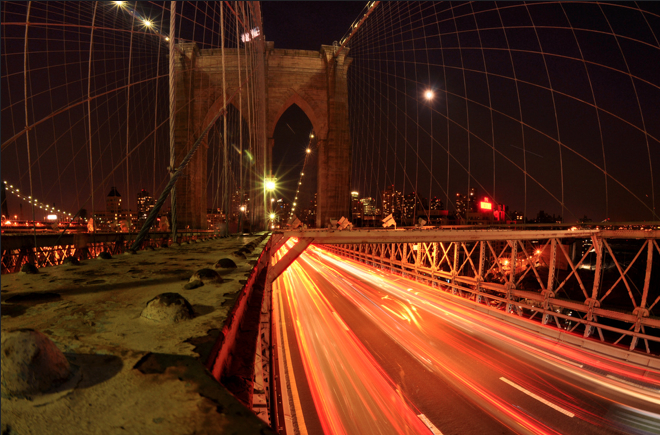
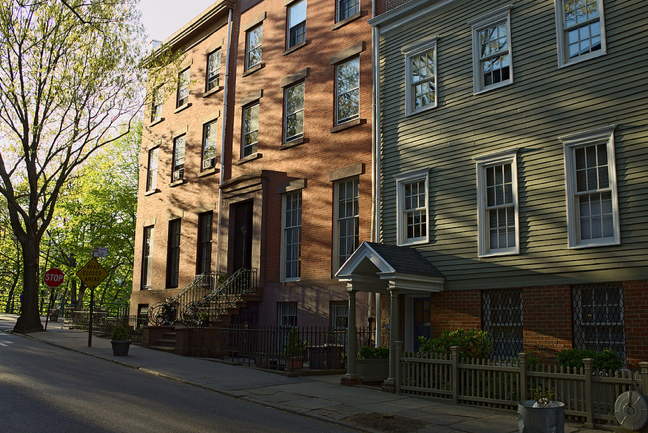
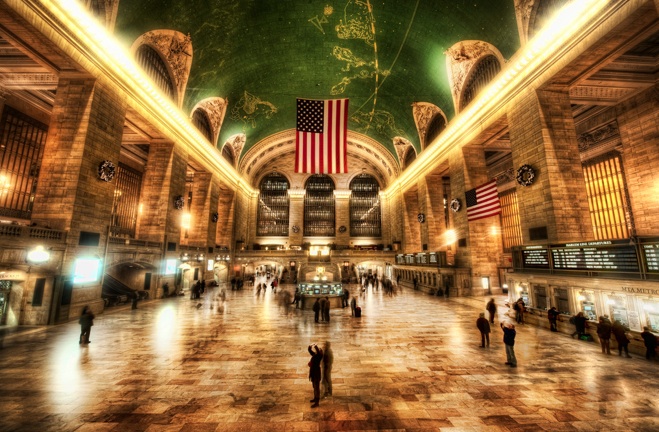
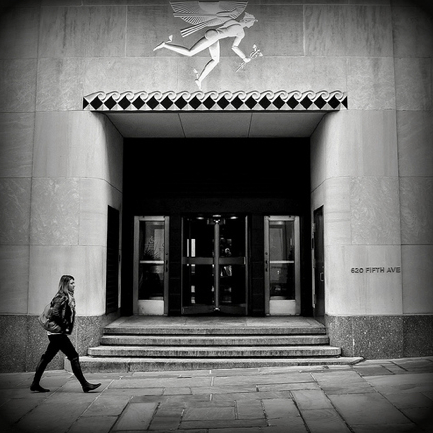
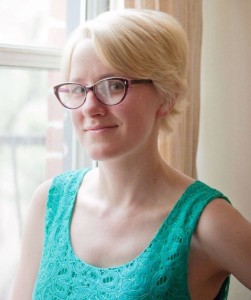
nice article